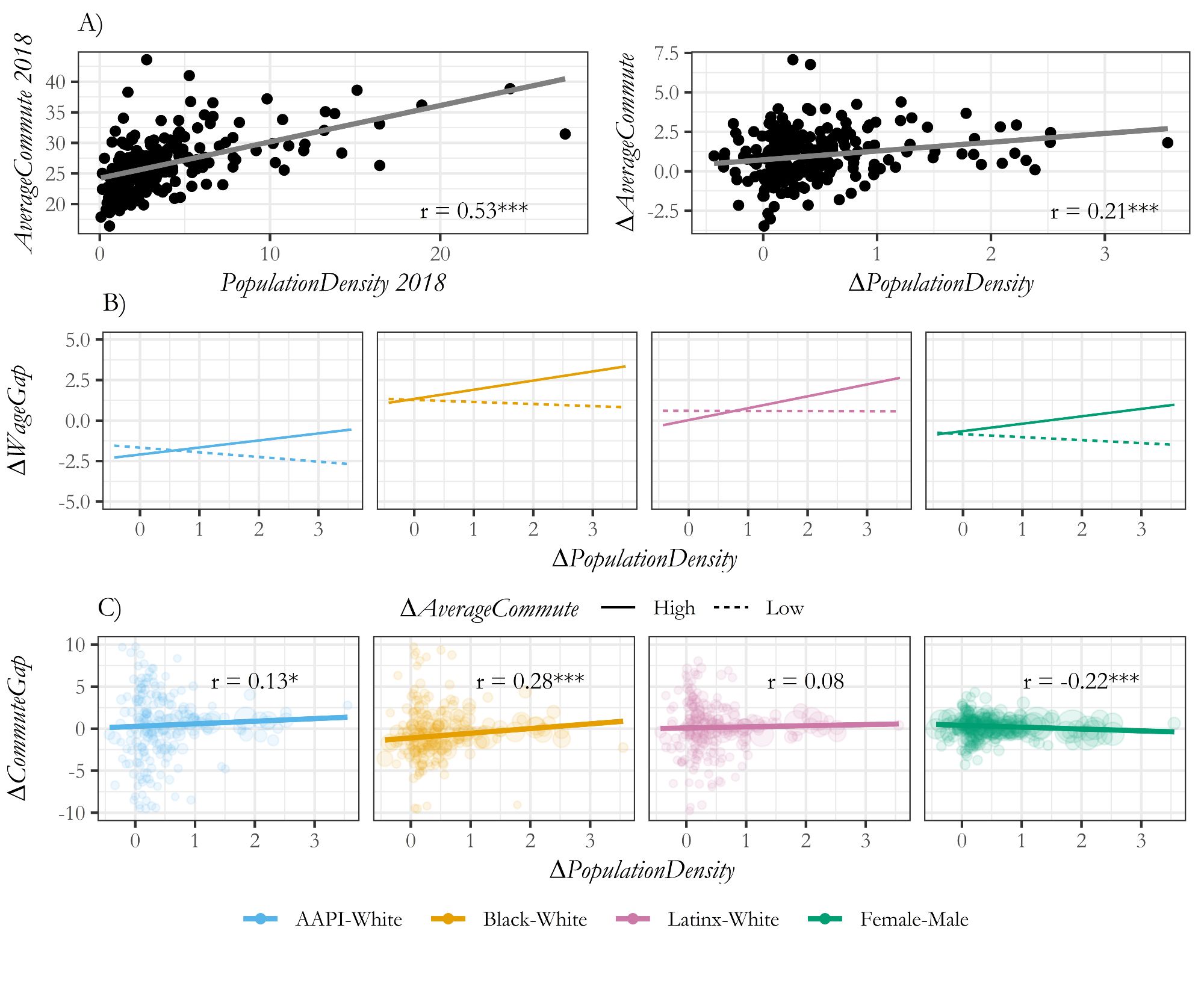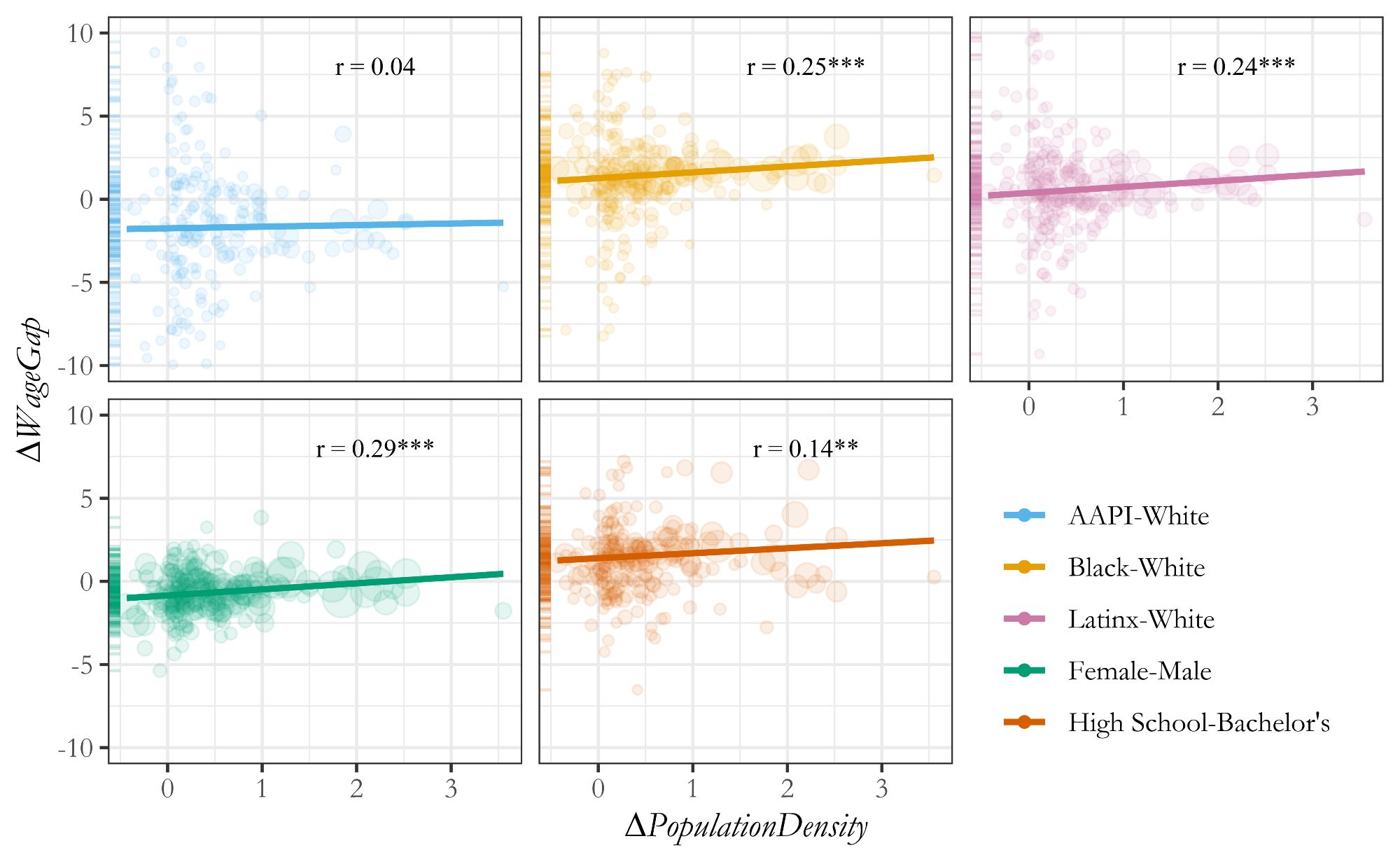
Not sure that I necessarily think the following is the case - but couldn’t you also interpret increased household formation as evidence of adequate supply? Households increase because there are units for them to live in. Or am I missing something here?
they should remind planners and policymakers that density is not inherently good - it has costs, and we need to be mindful of who bears those costs.
show that the relationship between changes in density and changes in inequality is higher when commute times also rise, as well as that changes in density are related to changes in commuting inequality. Should these results be taken as a case against increasing density in cities? Probably not. BUT,

childcare (which disproportionately falls on women) and a career in denser cities is particularly onerous. What explains these relationships? Other research points at ways in which the congestion costs of density may be primarily borne by women and non-White workers. Similarly, I
For race, the density-inequality relationship is primarily among workers with high-incomes, while for gender it is among women and men with low incomes. For gender, I also find density is only related to gender inequality among workers who have children, suggesting that managing

should remind planners and policymakers that density is not inherently good - it has costs, and we need to be mindful of who bears those costs.
between changes in density and changes in inequality is higher when commute times also rise, as well as that changes in density are related to changes in commuting inequality. Should these results be taken as a case against increasing density in cities? Probably not. BUT, they

(which disproportionately falls on women) and a career in denser cities is particularly onerous. What explains these relationships? Other research points at ways in which the congestion costs of density may be primarily borne by women and non-White workers. Similarly, I show that the relationship
For race, the density-inequality relationship is primarily among workers with high-incomes, while for gender it is among women and men with low incomes. For gender, I also find density is only related to gender inequality among workers who have children, suggesting that managing childcare
